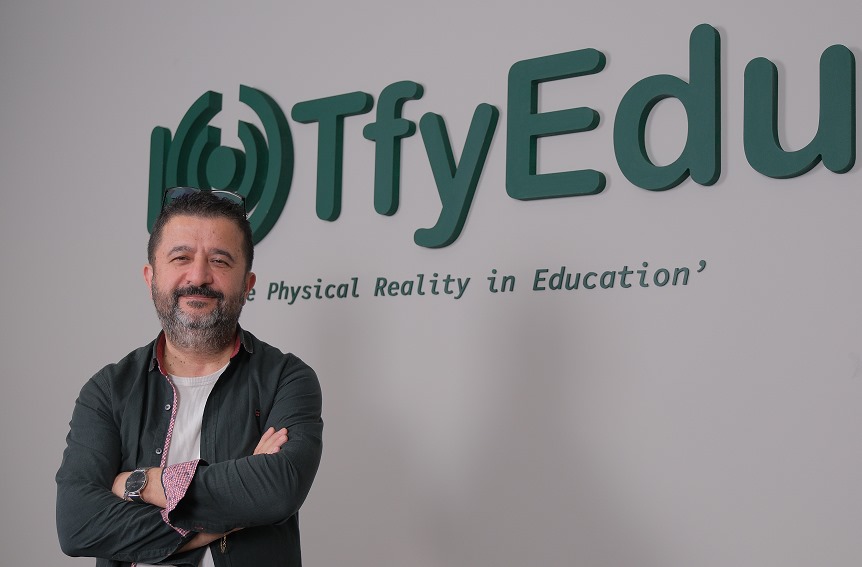KEYNOTE SPEAKERS

Prof. Mario Dumančić
University of Zagreb
AI Pedagogical Agents: Opportunities, Challenges, and Future Perspectives click for abstract
Prof. Mario Dumančić is a faculty member at the University of Zagreb's Faculty of Teacher Education, specializing in digital educational technologies and artificial intelligence in education. He teaches courses such as Creating Digital Educational Content, Methodology of Teaching Informatics, and AI in Education. His research focuses on AI pedagogical agents, integrated smart learning ecosystems, and retrieval-augmented generation frameworks. Prof. Dumančić has led and collaborated on multiple national and international projects, including initiatives aimed at developing innovative AI-driven tools and methodologies for inclusive, personalized learning. He has authored and co-authored numerous papers published in Web of Science and Scopus-indexed journals and frequently serves as a reviewer and editorial board member for international academic journals. He is passionate about bridging cutting-edge AI technologies with practical classroom applications, fostering collaboration between researchers, educators, and policymakers. Beyond academia, Prof. Dumančić actively promotes professional development for teachers and the ethical use of AI in education to enhance equitable learning opportunities.

Prof. Selçuk Özdemir
Gazi University
Integration of AioT into Classroom: The Physical Reality in Education click for abstract
Prof. Dr. Selçuk Özdemir: An Inventor and Investor in Educational Technology
Prof. Dr. Selçuk Özdemir is a person with a 36-year background in software development and 27 years as a leading academician in educational technologies. For the past 16 years, his research and practice have centered on empowering children with critical 21st-century skills: coding, 3D design, circuit design, and entrepreneurship. This dedication led him to found Bilişim Garajı, an innovative enterprise that has reached millions of children across Turkey through its online and face-to-face programs.
The Vision of IOTfyEdu
In recent years, Dr. Özdemir has been driving a cutting-edge R&D initiative to create the IOTfyEdu project, a line of patented, unique smart devices specifically designed for modern classrooms. This technology represents a powerful fusion of physical and digital learning, providing teachers and students with the combined advantages of both worlds. These unique tools have already been successfully deployed and tested in schools across Turkey and Europe for the last six months, beginning a new chapter in hands-on, connected education.
AI Pedagogical Agents: Opportunities, Challenges, and Future Perspectives
×Abstract
Artificial Intelligence–driven Pedagogical Agents—personalized digital companions for learners—are rapidly emerging as one of the most transformative technologies in education. Their ability to deliver individualized, real-time support to every student promises adaptive, engaging, and highly effective learning experiences. Yet their development and implementation raise critical challenges, including pedagogical design, ethical considerations, and technical integration within existing systems.
This presentation offers a concise overview of the opportunities and challenges surrounding AI Pedagogical Agents. Core functions—ranging from intelligent tutoring and motivational scaffolding to metacognitive skill development—will be introduced and contextualized. As a case study, we will showcase the architecture of our Integrated Smart Learning Ecosystem, where the Pedagogical Agent serves as the central hub of student interaction. Leveraging dynamic learner archetypes and real-time analytics dashboards for educators, this ecosystem illustrates how agents can mediate personalized pathways and actionable insights.
Join us to explore future perspectives on AI Pedagogical Agents and discover how these technologies can reshape the educator's role, empower learners, and redefine personalized education.
Integration of AioT into Classroom: The Physical Reality in Education
×Abstract
Learning necessitates practice. In the realm of science, this means hands-on engagement with real materials. It's a well-established fact that given the opportunity to practice with tangible resources, individuals can deepen their understanding and significantly improve knowledge retention. However, a global challenge exists within education systems regarding this very practice, especially in science education. Even when science teachers have access to laboratories or materials for experiments, they may opt for abstract, intangible teaching methods, such as lecturing or simply drawing on a whiteboard. Numerous studies reveal that K-12 students visit science laboratories a mere 3-5 times during a 40-week academic year.
IoT devices communicate with each other to make our living spaces more comfortable, secure, and energy-efficient. As in other industries, the integration of IoT-based technologies into classrooms has significant potential to enhance education:
- Reducing the teacher's pre-lesson preparation time
- Eliminating the drudgery of teachers
- Conducting easy, fast, large number of low-cost science experiments
- Opportunity to conduct science experiments with real materials in both distance education and face-to-face education
Can smart technologies, which have revolutionized all other sectors, be used in classrooms to increase the comfort of teaching and learning for teachers and students?